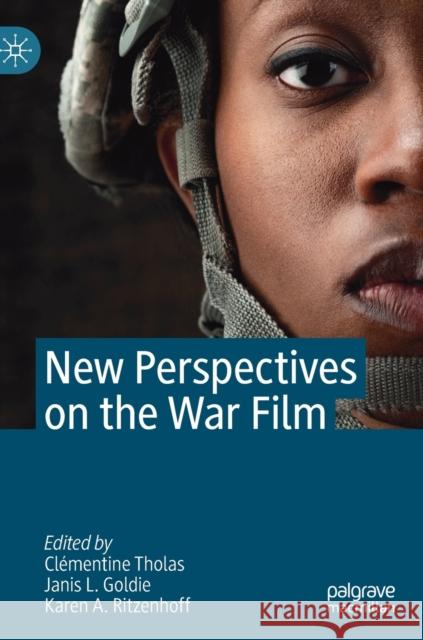New Perspectives on the War Film » książka



New Perspectives on the War Film
ISBN-13: 9783030230951 / Angielski / Twarda / 2019 / 301 str.
New Perspectives on the War Film
ISBN-13: 9783030230951 / Angielski / Twarda / 2019 / 301 str.
(netto: 460,04 VAT: 5%)
Najniższa cena z 30 dni: 462,63
ok. 22 dni roboczych.
Darmowa dostawa!
Clémentine Tholas is an Associate Professor of American Studies at Paris III-Sorbonne Nouvelle University, France. Her research interests focus on early motion pictures in the US, namely on WWI cinematic propaganda and the role of silent films as tools of progressivism. Clémentine Tholas published Le Cinéma américain et ses premiers récits filmiques (2014) and co-edited with Karen A. Ritzenhoff a collective volume entitled Humor, Entertainment, and Popular Culture during World War I (Palgrave, 2015).
Janis L. Goldie is Associate Professor and Chair of the Communication Studies Department at Huntington University at Laurentian, Canada. Her research focuses on the Canadian war film genre and the constructions of the Canadian military in media culture products such as video games, graphic novels and television advertisements. She co-edited with Karen A. Ritzenhoff, “The Handmaid’s Tale:” Teaching Dystopia, Feminism, and Resistance Across Disciplines and Borders (2019).
Karen A. Ritzenhoff is Professor, Department of Communication at Central Connecticut State University, USA. She is affiliated with the Women, Gender, and Sexuality Studies Program and cinema studies. She recently co-edited with Janis L. Goldie, “The Handmaid’s Tale:” Teaching Dystopia, Feminism, and Resistance Across Disciplines and Borders (2019). In 2015 she coedited The Apocalypse in Film with Angela Krewani; Selling Sex on Screen: From Weimar Cinema to Zombie Porn with Catriona McAvoy, and Humor, Entertainment, and Popular Culture during World War I with Clémentine Tholas (published by Palgrave, 2015). Ritzenhoff is also co-editor of Heroism and Gender in War Films (Palgrave, 2014) with Jakub Kazecki.
'This brilliant edited volume provides a necessary critique and update to mainstream war films that have systematically erased women and minorities from their narratives. With chapters on Indian soldiers at Dunkirk, varying and complex portrayals of women in combat, indigenous soldiers, depictions of homosexuality, representations of terrorism, and much more, New Perspectives on the War Film brings together innovative research highlighting not just the changing nature of the war film, but war itself.'
— Brian E. Crim, John M. Turner Distinguished Chair in the Humanities, University of Lynchburg, USA
Clémentine Tholas is an Associate Professor of American Studies at Paris III-Sorbonne Nouvelle University, France. Previously published works include Le Cinéma américain et ses premiers récits filmiques (2014) and co-edited with Karen A. Ritzenhoff a collective volume entitled Humor, Entertainment, and Popular Culture during World War I (Palgrave, 2015).
Janis L. Goldie is Associate Professor and Chair of the Communication Studies Department at Huntington University at Laurentian, Canada. She co-edited with Karen A. Ritzenhoff, “The Handmaid’s Tale:” Teaching Dystopia, Feminism, and Resistance Across Disciplines and Borders (2019).
Karen A. Ritzenhoff is Professor, Department of Communication at Central Connecticut State University, USA. She is affiliated with the Women, Gender, and Sexuality Studies Program and cinema studies. She recently co-edited with Janis L. Goldie, “The Handmaid’s Tale:” Teaching Dystopia, Feminism, and Resistance Across Disciplines and Borders (2019). In 2015 she coedited The Apocalypse in Film with Angela Krewani; Selling Sex on Screen: From Weimar Cinema to Zombie Porn with Catriona McAvoy, and Humor, Entertainment, and Popular Culture during World War I with Clémentine Tholas (published by Palgrave, 2015). Ritzenhoff is also co-editor of Heroism and Gender in War Films (Palgrave, 2014) with Jakub Kazecki.
1997-2026 DolnySlask.com Agencja Internetowa
KrainaKsiazek.PL - Księgarnia Internetowa









